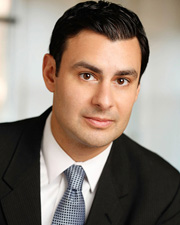


Since the height of the pandemic, many workers have begun to return to the office. However, even with this resurgence, Midtown offices are more desolate than ever. One of the most asked questions has been ‘Will workers return to the office full time?” and “How is this work shift going to affect the economy?” More specifically, how have work-life patterns been altered by the pandemic, and how does it impact New York City’s economy and tax base.
The response to this question lies in the extent to which workers will return to their offices for the typical five-day workweek. Since the pandemic, the average business has allowed that employees employ a hybrid work model, involving a mix of working from home and working in the office.
However essential this analysis is, the long-term structural and economic effects are hard to gauge. While we are seeing direct effects on surrounding commercial real estate, we are not able to foresee the exact repercussions of new work patterns. However, with current data, we can analyze the effects the pandemic has had on Midtown, New York, and how similar future behavior may be detrimental to commercial real estate.
The fate of commercial areas no longer depends on when COVID ends
Employer’s best-case scenario in an attempt to bring employees back to the office is that hybrid policies gain further traction and encourage employees to return at least two to three days a week. The effects of the pandemic have made it so consumers change their spending decisions. This could mean consumers may be inclined to bring food into the office instead of dining out. Therefore, the fate of commercial areas now relies on where future spending occurs, which is entirely in the hands of the consumer.
Retail and office markets will take even longer to bounce back in comparison to neighborhoods that have a higher concentration of residential real estate
With an approximate 40% reduction in the daily average workforce in Midtown, neighboring retailers and small businesses will take longer to recover from the economic effects of the pandemic. Normal workday spending, such as lunch, coffee, shopping, happy hour, etc. are now items or events that are taking place close to or at home, or not at all. Arguably the most important metric is that of employee commute expenses. Without commuters, a large portion of employee spending will no longer be occurring in the city, reducing city sales tax revenue.
It is unlikely that business travel will resume to pre-pandemic levels
While virtual work does allow for businesses to allocate travel funds elsewhere, business travel comprises a significant level of economic activity and tax revenue. Not only is the lack of business travel highlighting the economic value it holds, but it
emphasizes the overall inconvenience of business travel and the convenience of remote work.
Vaccines alone will not bring people back to the office
Unfortunately, even though many offices and locations do mandate that their employees be vaccinated, that doesn’t correlate with the number of employees who are willing to come back to the office. The vaccination rate in NYS and NYC is between 70-80% and the reluctance to come back to the office is not due to fears of COVID, but rather the workforce having become accustomed to being home and not wanting to go back to life as we knew it pre-pandemic. Nearing two years into the pandemic, we are seeing roughly about 33% of the workforce back in midtown Manhattan. What is going to be the catalyst for this number increasing significantly? Issues like commute, safety, inaccessibility, and crime are all factors that affect employees’ decisions to decline coming into the office. Until there are large changes in Manhattan’s responsiveness to recent issues, we will continue to see a decline in employee attendance.
Michael Romer and Pierre Debbas are managing principals of Romer Debbas LLP, New York, N.Y.




